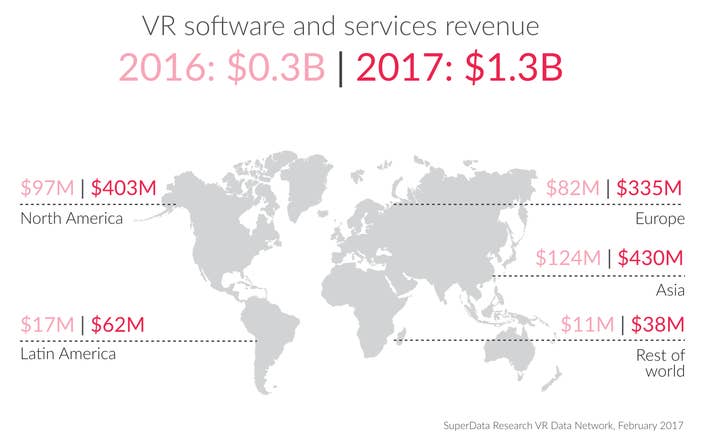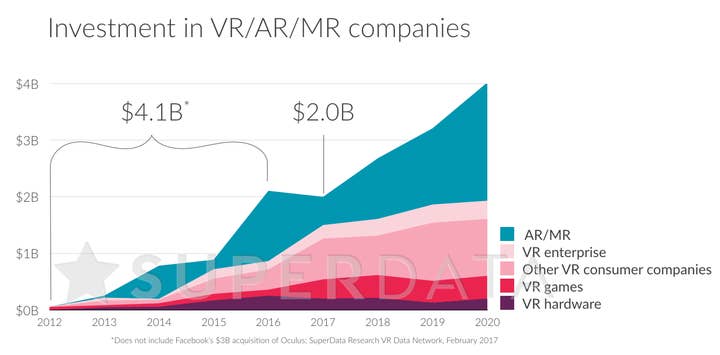VR hardware to hit $3.6 billion in revenues in 2017 - SuperData
Revenue from VR software and services will also grow to $1.3 billion, according to the research firm's new forecast
At the DICE Summit this week Oculus head of content Jason Rubin talked about how the "reality part of the curve" in the VR market would last a couple of years. After a slow start for VR in 2016, the researchers at SuperData believe that the market is ripe for expansion. VR software and services revenue is expected to grow from $300 million last year to $1.3 billion in 2017.
From a global perspective, Asia and North America are expected to be neck-and-neck, with Asia leading at $430 million in revenues compared to $403 million for North America. Europe is forecast to be slightly behind at $335 million. That being said, North America will be the fastest-growing market in 2017, SuperData noted.

Compared to Asia, North America generally sees consumers with larger homes and therefore more space for room-scale VR. SuperData found that 45% of PC headset owners have at least 10 feet by 10 feet of VR play space.
While VR software is continuing to grow, hardware is still the primary market driver. "As headset manufacturers face fewer supply constraints than last year, hardware sales will continue to earn more than VR software until 2020," SuperData said. Indeed, hardware revenues from VR are expected to grow by 142% to $3.6 billion in 2017.
SuperData is predicting 21 million premium headsets to ship this year, which would be more than triple 2016's total. Additionally, 59 million mobile VR headsets are expected to ship this year, which would be down compared to 84 million shipped in 2016. SuperData believes this is due to consumers looking to invest in higher-end devices. That said, the firm does believe that Google Daydream will sell the most premium headsets in 2017, with about 6.8 million sold to consumers. "China's growing production of affordable premium mobile headsets, standalone devices and VR-compatible phones is increasing accessibility to higher-end tech," the company noted.
While the focus of the report was on VR, SuperData also took a long-term view, suggesting that AR and MR (mixed reality) would be dominating the market with a combined $30.4 billion in 2020. "MR devices like the Microsoft Hololens are not yet ready for consumers, but earnings are on track to overtake VR revenues in the long run," SuperData said.

